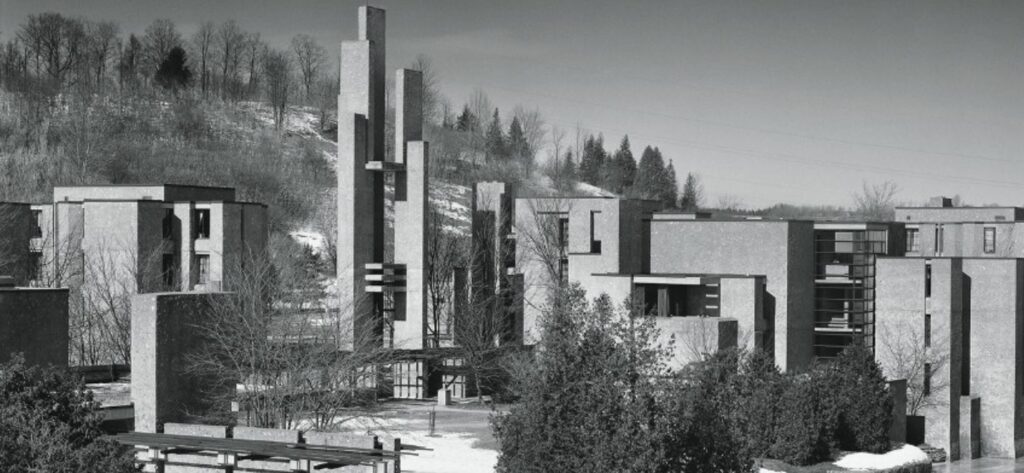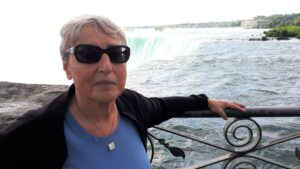Alena Heitlinger
I was born in 1950 in Prague, where I lived until 1968. When the Warsaw Pact armies invaded Czechoslovakia in August 1968, I was vacationing in England. Fearing Soviet oppression and the resurgence of antisemitism (I am Jewish), my parents urged me not to come back. I agreed with their decision, and my life was changed forever. While my parents felt too old to emigrate and start all over again themselves, they expressed full confidence in my ability to manage on my own. And I did not disappoint them. However, this can be at least partly attributed to the fact that the conditions of my exile could not have been more favourable. I now sometimes call my emigration a ‘Cadillac’ experience. I was quite young and ready for new adventures, British public opinion was sympathetic to the plight of Czechoslovak refugees in 1968, the British government gave us open work permits without the need to apply for a formal political asylum, and eligible students were able to enrol, with scholarships, in post-secondary educational institutions already in October 1968, less than two months after our exile began. British universities made a one-time exception and recognized Czechoslovak matriculation as equivalent to British A-levels. Thus, for somebody who had just turned 18, was a recent graduate from a Czechoslovak high school (with good marks, I must admit), and who spoke some English and found herself as a refugee, England in late August and September 1968 was the ideal place to be. Instead of embarking on the study of law at Charles University in Prague, I began studying sociology at the University of Kent at Canterbury. While having to study and write in English was very hard, especially during my first year, I found student life exciting and enjoyable. I also found myself at the age of 18 free from parental control and financially independent. Moreover, as several of my friends from the Prague Jewish community also ended up in England, I had as many friends in London as I would have had in Prague if I had chosen to return. Thus, I soon felt ‘at home,’ though it turned out not to be a permanent one.
My advisor encouraged me to look abroad

As my Ph.D. studies (at the University of Leicester) were coming to an end, I began to search for an academic position. My advisor encouraged me to look abroad and, when Trent University in Canada offered me a full-time teaching job in the spring of 1975, I did not hesitate to take it. My second emigration did not involve a major displacement. This time there was no loss of language, and only a minimal loss of roots and culture. In fact, there was a basic continuity in my professional life, since my early years in Canada were devoted to revising my Ph.D. thesis for publication. Moving to Canada ended up being a smart choice. My successful university career, marrying a Canadian (also a Professor at Trent University) and giving birth to my two sons gave me new roots, and a new sense of belonging. As an author of six books (two of which were also translated into Czech) and numerous articles, I had published in the areas of gender, health professions, demographic and social policies, and Jewish studies. I retired as Professor Emeritus in 2014.
Although I left my native country more than 50 years ago, Czechoslovakia never fully left me, not even after it formally dissolved as a state on January 1, 1993. I have remained engaged with Czechoslovakia, the Czech Republic, Slovakia, and Prague, the city of my birth, both through my academic work and publications, and through frequent visits and other forms of personal contact. At the same time, I must admit that, after 1989, I have found my location in North America a real disadvantage on occasion. Unlike those who stayed in Europe, I cannot easily fly to Prague for short visits several times a year. This was particularly brought home to me in May 2010, when, to my great regret, it simply was not feasible for me to fly to Prague to celebrate with my high school friends our 60th birthday. I have gone to most of the other high school reunions (the last one in May 2018). I have also attended several reunions of my Jewish youth group (Children of Maisel Street).
I consider both my migrations to have been quite successful, and I would not change anything if I had to do it all over again
I consider both my migrations to have been quite successful, and I would not change anything if I had to do it all over again. A special sense of gratitude for the relative lack of regrets belongs to my late parents. Their encouragement of my non-return from England in 1968 made my decision to emigrate that much easier. Little did I (or they) know then that this decision would turn out to be the crucial building bloc for the rest of my life. I will never forget their personal sacrifice, which I can now appreciate much more than I could have in 1968, when I did not have any children of my own.




